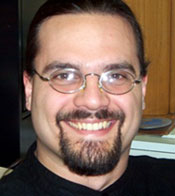Here’s the latest from the FAUW president and Board of Directors, based on our April 1 meeting, which did not involve any April Fools pranks, but did feature a brief birthday celebration!
President’s report to FAUW board
-dan brown, March 29, 2021
I am somewhat hopeful that we’re entering a somewhat smoother time in the next few weeks than we had in what has to be one of the longest winter terms in history. Whatever your spring activity is, whether it’s gardening or cycling or just sitting outside watching the sun set, I hope you’ll get a chance to enjoy it in April.
FAUW board elections are under way! At the AGM on April 16, we’ll find out which four candidates have won election to the At-Large seats, and which one candidate has won election to the Lecturer seat on our board. I’m delighted to see the large slate of excellent candidates that have come forward, and look forward to working with all of them, either on our board or in other FAUW service. My thanks to the FAUW Elections Committee (Peter Johnson, Heidi Engelhardt, Amanda Garcia, Nomair Naeem, Laura McDonald) for their excellent work in recruiting candidates!
FAUW’s Lecturers Committee hosts a town hall on March 30 (I’m writing this on March 29). I’m expecting in particular to hear a lot about Lecturers’ concerns regarding Policy 76 and Policy 77, which will be useful for the members of the committee developing the changes to that policy.
The issue of the day continues to be planning for fall term. I encourage FAUW members who will need accommodations for that term (including because their health conditions might require them to avoid in-person teaching) to contact our AF+T committee and work with them to get those accommodations put in place. The administration has said some good things about ensuring a safe workplace for all employees for that term, but there are few details. That said, the whole situation around the end of the pandemic is deeply complicated, and is not helped by there still being shortages of the vaccines needed.
Of course, spring term instructors are just as exercised by planning for that term as well, and I hope you’ll at least have some of a gap before spring term starts.
LAAUW, the Librarians and Archivists Association of UW, held a vote in March to identify whether its members wanted to join FAUW. Their members decided that they prefer their current status [as staff members]. FAUW will continue to liaise with LAAUW on matters of shared interest (academic freedom, scholarly publishing and open access, research metrics, to name a few). I’m delighted to know that they’ve made a decision about their preferred futures. As I said back in the fall when Erin Windibank and I met with them, time with librarians is always time well spent.
Highlights from the Board discussion
Here’s what we talked about during the meeting:
Continue reading “This April 1 Board meeting report is no joke”
